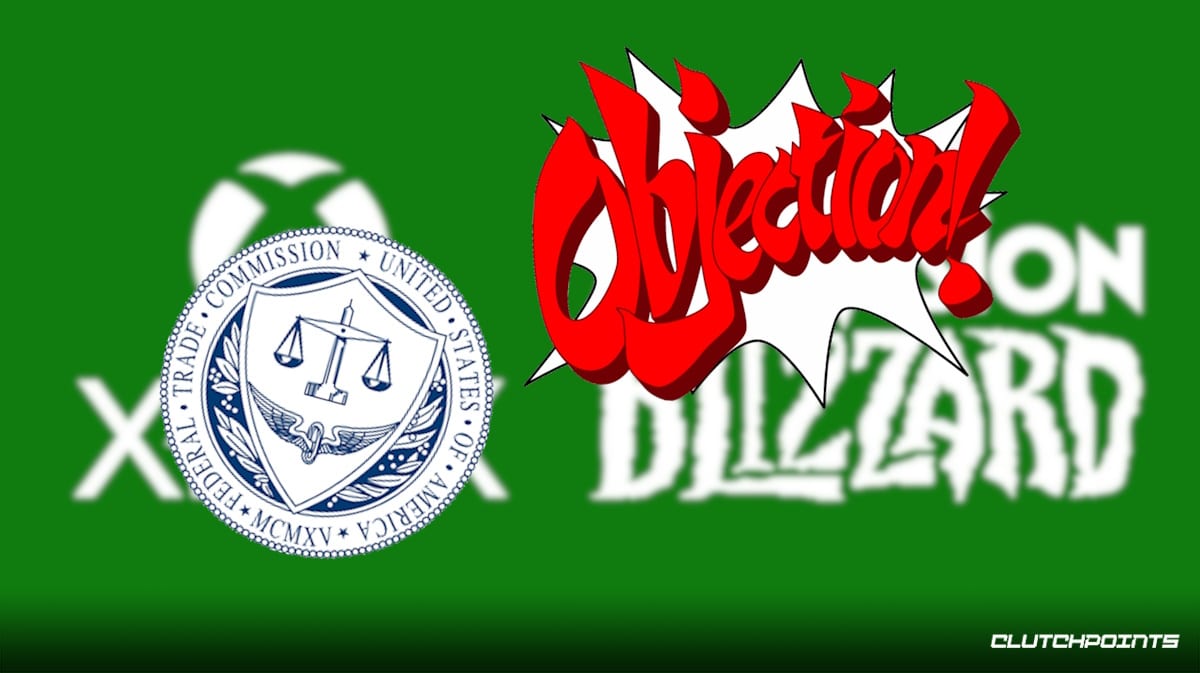FTC Appeals Activision Blizzard Acquisition Decision

Table of Contents
The FTC's Initial Concerns and Arguments Against the Merger
The FTC's opposition to the Microsoft-Activision Blizzard merger stemmed from concerns about potential anti-competitive practices and market dominance.
Anti-competitive practices: The Call of Duty Conundrum
The FTC's primary concern revolved around the immensely popular Call of Duty franchise. They argued that Microsoft's control over this title could stifle competition by:
- Exclusive Deals: Restricting Call of Duty availability to Xbox consoles and PC, potentially harming PlayStation users and undermining Sony's market position.
- Limited Functionality on Competing Platforms: Degrading the Call of Duty experience on rival platforms, making the Xbox version far superior.
- Pricing Manipulation: Leveraging Call of Duty's popularity to inflate prices or bundle it with other products, creating an unfair advantage.
The FTC cited evidence suggesting that Call of Duty generates billions of dollars in revenue annually, making its exclusivity a significant competitive weapon. This potential for market manipulation was central to their initial arguments.
Market Domination and Consumer Harm
The FTC argued that the merger could lead to broader market dominance by Microsoft, resulting in:
- Higher Prices for Gamers: Reduced competition could result in increased prices for games and gaming consoles.
- Less Innovation: A lack of competition could stifle innovation in game development, leading to fewer new titles and less variety.
- Reduced Consumer Choice: Gamers might have less choice in terms of platforms and games, limiting their options and potentially affecting the overall quality of the gaming experience.
The FTC pointed to historical examples of mergers resulting in similar negative outcomes, highlighting the potential for consumer harm in this specific case.
The Court's Decision and the FTC's Rationale for Appeal
A US District Court judge ultimately dismissed the FTC's lawsuit, allowing the acquisition to proceed.
Summary of the Court Ruling
The court's decision centered on the argument that the FTC failed to provide sufficient evidence to demonstrate that the merger would substantially lessen competition. The judge found that Microsoft's commitment to keeping Call of Duty available on multiple platforms mitigated the FTC's concerns. There were no dissenting opinions in this ruling. [Link to court document would go here].
FTC's Grounds for Appeal
Despite the court's decision, the FTC believes the judge's assessment was flawed and filed an appeal. Their key arguments include:
- Insufficient Consideration of Long-Term Effects: The FTC argues the court did not adequately consider the potential for Microsoft to change its strategy regarding Call of Duty in the future, once it had secured control of Activision Blizzard.
- Underestimation of Market Power: The FTC claims the court underestimated the potential for Microsoft to leverage its market power to harm competitors.
- Inadequate Review of Evidence: The FTC argues that the court did not adequately consider all the evidence presented, particularly regarding Microsoft's past behavior and market dominance in other sectors.
The FTC's appeal uses existing legal precedents to argue that the court's interpretation of anti-trust laws was incorrect and that the merger should be blocked.
Potential Outcomes and Implications of the Appeal
The FTC's appeal against the Microsoft-Activision Blizzard deal carries significant weight, with several potential outcomes:
Scenarios for the Appeal
- Successful Appeal: The appellate court could overturn the lower court's decision, blocking the merger.
- Rejection of the Appeal: The appellate court could uphold the lower court's decision, allowing the merger to proceed.
- Settlement: Microsoft and the FTC could reach a settlement, potentially involving concessions from Microsoft to address the FTC's concerns.
The implications of each scenario are vast, affecting Microsoft's gaming ambitions, Activision Blizzard's future, and the competitive dynamics of the entire gaming industry. Potential regulatory changes following a successful FTC appeal could reshape future mergers and acquisitions in the tech sector.
Impact on the Gaming Landscape
Regardless of the outcome, this legal battle has already significantly impacted the gaming landscape:
- Increased Scrutiny of Mergers: The FTC's aggressive stance sets a precedent for increased scrutiny of large mergers and acquisitions in the tech industry.
- Uncertainty for Developers: The uncertainty surrounding the merger creates a climate of uncertainty for game developers, influencing their business decisions and potentially inhibiting innovation.
- Shifting Power Dynamics: The outcome will drastically alter the power dynamics within the gaming industry, impacting the competitive landscape for years to come.
Conclusion: The Future of the FTC Appeals Activision Blizzard Acquisition
The FTC's appeal of the Activision Blizzard acquisition decision is a landmark case with far-reaching implications for the gaming industry and competition law. The potential outcomes – a blocked merger, approval, or a negotiated settlement – will significantly shape the future of gaming, influencing competition, pricing, and innovation. The arguments raised by the FTC and the court's responses have highlighted the complexities of regulating powerful tech companies and the crucial role of antitrust laws in maintaining a healthy and competitive market. Stay informed about this ongoing legal battle and its impact by following relevant news sources and subscribing to updates on the "Activision Blizzard acquisition appeal" and the "FTC's challenge to Microsoft-Activision merger." The future of gaming may well depend on the outcome.

Featured Posts
-
 Nepredskazuemye Snegopady V Mae Problemy Meteorologicheskikh Prognozov
May 09, 2025
Nepredskazuemye Snegopady V Mae Problemy Meteorologicheskikh Prognozov
May 09, 2025 -
 Edmonton Oilers Comeback Victory Evens Series With Los Angeles Kings
May 09, 2025
Edmonton Oilers Comeback Victory Evens Series With Los Angeles Kings
May 09, 2025 -
 Is Chris Martin Influencing Dakota Johnsons Acting Roles
May 09, 2025
Is Chris Martin Influencing Dakota Johnsons Acting Roles
May 09, 2025 -
 Mind The Gap Wheelchair Accessibility On The Elizabeth Line
May 09, 2025
Mind The Gap Wheelchair Accessibility On The Elizabeth Line
May 09, 2025 -
 Stock Market News Sensex And Nifty Close Higher Despite Ultra Tech Fall
May 09, 2025
Stock Market News Sensex And Nifty Close Higher Despite Ultra Tech Fall
May 09, 2025
Latest Posts
-
 Nottingham A And E Records Accessed Illegally Families Of Stabbing Victims Demand Justice
May 09, 2025
Nottingham A And E Records Accessed Illegally Families Of Stabbing Victims Demand Justice
May 09, 2025 -
 Nhs Data Breach In Nottingham Stabbing Victims Families Demand Answers
May 09, 2025
Nhs Data Breach In Nottingham Stabbing Victims Families Demand Answers
May 09, 2025 -
 Families Furious After Nhs Staff Accessed A And E Records Of Nottingham Stabbing Victims
May 09, 2025
Families Furious After Nhs Staff Accessed A And E Records Of Nottingham Stabbing Victims
May 09, 2025 -
 Nottingham Hospital Data Breach Families Outraged By Access To Loved Ones A And E Records
May 09, 2025
Nottingham Hospital Data Breach Families Outraged By Access To Loved Ones A And E Records
May 09, 2025 -
 Data Breach Nhs Staff Face Inquiry Over Access To Nottingham Victim Records
May 09, 2025
Data Breach Nhs Staff Face Inquiry Over Access To Nottingham Victim Records
May 09, 2025
